“The inability to play independently inevitably increases the child’s sense of dependence on the adult. Conversely, independent activity allows him to experience autonomy.” – Éva Kálló and Györgyi Balog, The Origins of Free Play
I often hear from parents concerned about their child’s inability to play alone. They perceive their child as either extra-needy, too “attached” or too social, or just not the type to ever play independently.
I don’t buy it.
In the 20 years I’ve been working with parents and their infants and toddlers, I have yet to meet a child incapable of reaping the joys and benefits of self-directed play. I’ve noticed that problems with play are primarily ours, not our children’s. And that’s good news, because it means it’s also in our power to remedy the issue.
The first step is recognizing how our fears, guilt, and misperceptions are disabling play. Besides believing that our child is innately incapable in this area, we might also think:
- It’s our job to play with our children, or at least keep them busy and entertained.
- Our children will one day demonstrate that they’re ready to play independently, but until then, we need to heed their plaintive requests to “play with me, Mommy!” (Which do have a way of pulling at the heartstrings, don’t they?)
- Our children might feel unloved as we did, because our own parents neglected or ignored us.
- Our child’s whining and crying when we’ve said we can’t play right now means he needs us desperately, feels scared, abandoned, heartbroken.
There is one common concern that is valid and true: We cannot and should not force children to play (as if that were even possible). And I’ll add: we should not even coax them to play, because coaxing signals to kids that we’re uncomfortable, tends to increase their resistance to whatever we want them to do, and can even turn an activity as innately pleasurable as play into a chore.
Our misperceptions and projections around play can make it virtually impossible for us to do the one (and only) thing necessary to free our children up to do it, which is to simply set a limit – to clearly, confidently, comfortably, and calmly state what we will do (i.e., make lunch, get a cup of tea, go to the bathroom) and for how long (approximately). Ideally, we leave our child in a safe, familiar play space where he or she has age-appropriate toys and objects.
And then, the hard part — allowing him or her to express some version of “noooo, I want you to stay,” which will probably sound more like, “I’m shattered, devastated, crumbling into a million tiny pieces! How could you do this to me, you mean, cruel, selfish parent?!”
So, there’s certainly plenty room for guilt if we decide to go there, but that only makes letting go to make room for play even more impossible (for both parent and child).
I recently consulted with a psychotherapist I’ll call Ruth, a kind woman I felt an instant rapport with who had adopted her son when he was a year old and kept him close and content to ensure he’d be attached. When she contacted me, he was 3 ½, and she was feeling exhausted and trapped because he was unable to play without her. He screamed and cried any time she tried to leave him. She worried that he’d been damaged somehow. When I assured her that this was a simple boundary issue that I knew she could fix, her mood lifted, and we ended up laughing about some of her misperceptions.
Ruth shared that there was one time her son had been able to play on his own… She’d had the flu and a fever so high that she couldn’t budge from the sofa even to lift her head, and her son entertained himself with blocks, cars, paper and crayons for hours. “What does that tell you?” I asked, a grin in my voice.
Several weeks later I received an update from Ruth thanking me for the complete turnaround she and her son had made, both of them reveling in his newfound love of play.
It can be challenging for us as parents to recognize our part in creating play dependencies. In this excerpt from a RIE Parenting discussion group, Mary Jane shares how she’s learning to free her daughter’s play:
Just wanted to share a happy progress report! Last week I was looking for encouragement to establish some independent playtime for my two-year-old. We’ve been working on it every day, and it gets better every day. This weekend we continued to work on it, and my husband and I could shower and get dressed with her happily playing in her room.
Today, she had no complaints when I left her room, and I could check in on her with the video monitor while I got dressed. She has been playing the past hour on her own — a world record for us! There has been giggling, reading, singing, talking to her babies, dramatic scenes, and lots of silliness going on up there. She called for me at one point and I wasn’t quite ready, so I told her it would be about ten more minutes, I still needed to brush my teeth. Her response was a happy and enthusiastic, “Yeaaaahhhh!!!” And then she went back to playing. Meanwhile, I’ve been able to get so much done on my own! Thank you so much for the encouragement and confidence to work on this. I’m ever grateful for this group and everyone that takes the time to help each other out.
Here is my process if it helps anyone get over their anxieties about it: Beforehand, the only established independent playtime was in a play yard right outside of my bathroom when I would shower. She accepted it and willingly went in there every day, but she would start asking to come out as soon as the water was shut off. So it was about 10-15 min where she was truly lost on her thoughts and play, but after that it was a lot of complaining and calling my name. I was having the nagging feeling that she was capable of playing longer, but I was distracting her. She definitely knew when shower time was over!
I decided I needed to work towards moving her independent play to her gated-off room upstairs, since there is a video monitor and I felt she would feel most comfortable in that space. The first time I tried it my anxiety came through, and I told her too many times I was leaving. There was lots of crying and resistance. After this lovely group’s encouragement, I tried again the next morning at the same time and told her only once, and she cried a little when I left but quickly settled into playing. She would return to complaining on and off… but still, progress.
The third day or so, very little if no protest at all and straight to playing until she pooped… Every day we did the same time, same place, and I worked so hard to tell her one time, then confidently leave. It has improved so much and she plays for much longer, especially since she can’t hear when the shower is over or be reminded that I’m right there. She finally gets lost in her own play, which is what I’ve been hoping for. The other day during another time that we were both in her room, she actually grabbed the gate that was leaning against the wall and was pointing it out to me, like “let’s put this up, it goes on my door.”
For me, I struggled with having confidence that she would be okay on her own, and I was overthinking what time would be best, if all her needs were met, etc. But she is fine and very capable. I was holding her back with my own doubts and fears. I really should have started a long time ago.
For further support and clarification, here’s a podcast on this topic:
***
I share more about fostering independent play in
Elevating Child Care: A Guide to Respectful Parenting. (now available in Spanish!),
and offer a complete guide to boundaries in No Bad Kids: Toddler Discipline Without Shame
Here are some informative articles about independent play:
What is Play, All They Need is Play, and just about everything else on Lisa Sunbury’s blog Regarding Baby
Respecting Play: Observing & Interacting at the Same Time by Suchada Eickemeyer from Mama Eve
The spectacular four part (so far) series on play by Nadine and Anna of Mamas in the Making
My numerous posts on play, especially Becoming Unglued, Solo Engagement, How To Stop Entertaining Your Baby and 7 Myths That Discourage Independent Play
(Photo by Sara Prince)

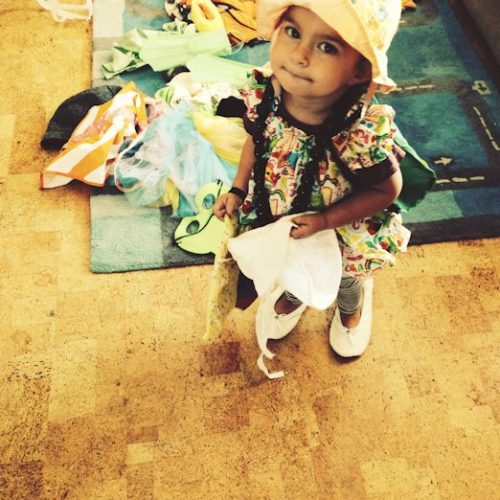

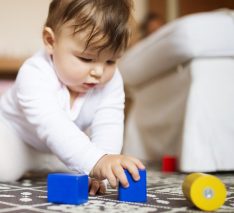


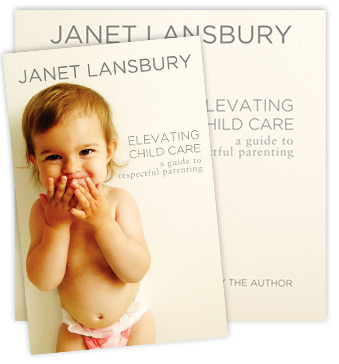

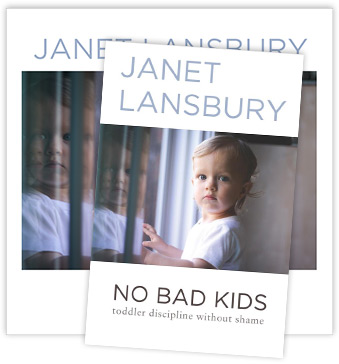




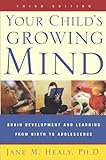
My wife and I LOVE this blog of yours Janet. We stumbled upon this blog while researching clinginess. Your article on clinginess was the best out of everything we read, and it introduced us to the world of RIE parenting. We’re now total RIE parents.
We have a large safe gated play area for our 15 month old twin boys to play in, but I often observe them interrupting each others self-directed play. I’m wondering if it would be better for their individual development to make another play area and split them up for a period of time every day so each can get some uninterrupted self-directed play. And can there be such a thing as too much daily time spent playing in a play area (out twins do 6+ hours daily)?
Thank you so much, Dinesh! The situation you’ve created sounds perfect… I wouldn’t change a thing. With multiples (or second children) there is a trade-off: less uninterrupted play, but much more social learning. This will serve them well in life and you can trust their process.
Enjoy!
Hi there, I totally agree with you on this topic. Our 2-year old is in a Montessori daycare full-time and gets lots of time for self-directed work/play there. And I enjoy playing with him when we are together: trains, dancing, reading books, painting/coloring, playing outside in the dirt and going for walks. If I am busy with something at home, he often asks “Play Mommy?” If I can stop, I will because it is some time to connect. If I can’t stop, I just tell him why, and tell him when I’ll be able to join him.
Sounds good, Faith.
Janet,
Are you suggesting that young children need to actually be alone in their safe space in order for independent play to flourish to its full extent?
My son plays while I’m in the room, and I come and go as I please; sometimes he follows me or other times stays by himself. It’s very fluid and variable how intently he plays alone depending on the day, weather, health, nutrition, sleep, developmental stage.
But this post seems to suggest a more structured ok-I’m-leaving-you-alone play time………….. If that is the case, do you have quantitative recommendations?
Sounds fine if that is working for you, and you are able to keep your child 100% safe whenever he is not supervised.
But no, there is no set amount of time… Generally, the recommendation is to allow for free play for the majority of the day, punctuated by fully attentive caregiving activities (diapering, bathing, dressing, mealtimes, bedtime rituals, etc.). We recommend putting away phones and all other distractions during those periods, so that children experience our full attention during these intimate rituals. Children are then “fueled” by our connection and able to direct their play for the remainder of their day.
I am coming to your books and blog later than I would have liked (eldest now 6) and I now recognise how my own feelings and behavior have led me to inadvertently inhibit independent play, especially in my firstborn – so I’m glad you say it’s never too late! I agree that as you say in the above comment there is no set amount of time you can recommend for connection. However, I wonder whether you (or any other posters) could recommend how individual parents might judge how much time they should be spending attentively with a child? In other words, how you might identify when a child NEEDS more of this, as opposed to WANTS more of it?
We are trying to help our two children, especially the eldest, play more independently, using the techniques you recommend. As expected, when we firmly set a boundary that we will not play with her at a given time, she cries/has a tantrum. However, we have now been doing this for some time: in fact, we started when she was still in preschool about a year ago; her teachers there had noticed that she struggled with not having constant adult attention and worked on this with her during the day (it’s a Montessori preschool so they are very pro-independence). While she has improved, and is now capable of focusing on lego or drawing etc for long periods, she still tantrums, a lot, when we ask her to play by herself for a certain time.
I initially assumed that her tantrums about this were the ‘hard bit’ in the above article, and would fade over time as the child learns (a) that no means no, and (b) how to play independently. However, tantrums are still happening a lot. It could be that we have not been firm / clear / unambiguous enough in setting these limits, so that she hasn’t been able to grasp them. However I am now wondering whether it’s also (a) her personality (she is a complete extrovert, talking constantly, and is very social; one of the most stubborn and persistent people I have ever met; is often overcome with frustration (at herself or others, i.e. tantrum) when her plans don’t work out) or (b) that we are not spending enough attentive time with her, so she is still seeking more of this, despite now knowing how to play independently.
I am concerned about the last possibility: with work, children, eldercare, household stuff, and little to no family support, we are at the limits of what we can fit into each day. This is why we got into this mess – we were very intensive with the girls when we were with them, as we were away from them such a lot. However, my husband says that while our eldest may want more time with me, she doesn’t need it. Any suggestions as to how we can tell whether he’s right?
Janet,
I’m really struggling with this now. I have your books and read the blog but could use specific guidance. My 3.4 year old spirited son is not in school. He has a wonderful nanny. So the guilt is definitely there for me to spend as much time with him as possible (we work full time) but also to provide lots of social stimulation. He’s very verbal and really loves to have conversations so most of his play involves things like, “mama-say: wow, that train is fast, where’s it going?!” and other lines he wants me to say in order to have a conversation. So the guilt is partly about me wanting him to have the chance to talk during play (we talk lots all the time outside of play and so does his sitter).
I’ve tried explaining various things to him: that I need to cook dinner, can he play on his own for a bit; or that while I’d love to play with him but I can’t because I need to do X. They work to an extent but there’s definitely no progress so dramatic or full such as the ones the people in stories describe. I know he can do it because he plays on his own when HE chooses to, and in the mornings when we sleep in! But it doesn’t seem to go so well when it’s my request.
Similarly, he protests when my husband and I try to talk to each other–interrupting, yelling, sometimes even throwing things. I’ve tried setting the boundary there, saying that I need to talk to daddy and he will have to wait but he ends up being so loud we can’t have a conversation, or him tugging at me while I’m trying to talk/listen just stresses me out to the point that I can’t really concentrate on what my husband is saying. I feel like the interrupting thing is connected to independence and independent play.
What am I doing wrong? Also, we do cosleep and it works great for our family, plus our apt in NYC is so small, it is almost a necessity. But I worry that cosleeping is driving the dependence although that seems a bit irrational. My son is very bright, perceptive, social, empathetic and kind. He is so advanced beyond his years in so many ways…but separation and independent play remains a challenge!
Thanks for any tips!
Danielle
Danielle – so much of what you are saying sounds like my situation with our 2.5 year old son. I work fulltime and he is in school but the wish (mutual!) to sit and interact with him on the floor with playdough or blocks or books after school is strong and I sense that I have certainly built an expectation – “when Mama is home, she is all MINE!” and the same thing happens when I speak with my husband. We have breakfast together every morning and sometimes we can all 3 engage in harmonious conversation but other times he shouts and acts out whenever we try to have adult conversation in his presence. I am trying to rationalize with him and explain how important it is that mama and papa speak to one another – but it’s a struggle and we find the added drama of a howling or hitting toddler only makes talking more stressful! So I am hoping for guidance on that as well as detaching myself as a mandatory playmate from my son during my after work and weekend time so that he can happily play independently but also feel my companionship and presence. We also co-sleep and I have had the same thought about dependence (but frankly I can’t accept that as a problem since most cultures co-sleep) so interested to hear if Janet has any advice! Sometimes just hearing other mothers with the same struggle is a support in itself! Claire
I could have written this comment, Danielle! My son is the same age and displays the exact same behaviors. The interrupting (screaming/throwing) in particular has me stumped and I believe it is connected to not being able to play independently as well. I am just finding RIE principles so I feel like we have a lot of work to do to undo some habits we’ve developed over the last 3years. I hope Janet responds to your comment!
Hi Danielle – I don’t think that “cosleeping is driving the dependence,” but it is a boundary-less situation, so other boundaries might need to be especially clear. For most children that is the case, regardless of where they sleep. I would stop requesting that your son plays and allow him to handle your clear limit as he wishes. And clear, comfortable (for you), certain and confident limits are the key that I sense might be missing. For instance, when you are sleeping in, it sounds like it is very clear to you that you are not going to be paying attention to your son at that time. Your son feels that assurance from you and so he is able to release you and engage in healthy play. That has to be the case in all situations. You can’t control how much he pushes (he sounds like a strong boy!), but you can rise tall and stick to your limits. So, even when he is interrupting you and your husband, you carry on as best you can without giving him negative or positive attention around that. Acknowledge only once, “You want my attention right now while I’m talking to Daddy. I can’t wait to hear what you have to say and will listen when I’m done.” Then, don’t give his testing the slightest attention. You will not have a great conversation while he is learning your limits in this area, but for the bigger the picture he will begin to experience your confidence and that will make it much easier for him to let go of you.
Sara U,
I don’t think that a physical boundary or time alone is what actually allows the child to get lost in play. I believe it is the belief in the parent and the clear boundaries made that can achieve the same thing. However, many parents struggle with being clear enough to allow this to happen. And many of us lack the inner honesty required to acknowledge that a child following us from one room to the next isn’t bothering us or inhibiting play. A child will often be interested in the agenda of his caregiver. And perhaps that’s ok at times, but when he is interrupted often, getting lost in play is compromised. And apart from the play aspect, I think there is great value in true separation even at times that he may have the desire to come and see you. He can learn that he can be ok and handle that time apart – which, IMO, is one more way to nurture the competence of the child.
Well said, Jennifer
Janet, you are making such a huge difference in the homes of so many families around the world. I’m so thankful I found your teachings and think there is much innate wisdom and logic in them. Instead of being a family that yells or bends over backwards to appease our sons, we are much calmer, more confident and yet more accepting than we would have been had we followed other parenting philosophies. Thank you so much.
At the moment, we do find that our 2.5 year old has difficulty playing alone when his 5 year old brother is around – it is as if he has an insatiable need and compulsion to intervene in whatever his big brother is doing! Sometimes they play together wonderfully, and other times the 5 year old is doing something that isn’t appropriate for the 2.5 year old, or that the 2.5 year old can’t understand. He can’t help himself and wants to destroy or disrupt what his big brother is enjoying. This problem is amplified significantly when the 5 year old has his friends around. Reading some recent suggestions of yours, at these times I have been trying to institute some alone time where he gets to choose a toy to play with by himself in another room for 10 minutes, which seems to be working OK (or at least better than the constant screams of frustration of the 5 year old). Any comments or suggestions would be welcome!
Hi Janet I’m an avid fan and have both your books. I have a 10 month old daughter and I’d really like some practical steps of how to go about in stilling some self directed play for her. Pls could you email me directly. Thanks in advance.
Hi Janet,
I first wanted to say that I LOVE your website and have been following it religiously since my son was born nearly five years ago. I love everything you’ve written.
My question is this: Do expectations for independent play change when you have an only child? I have a sister who I played with constantly growing up. We were pretty much inseparable. Because of my history, I often times feel guilty for choosing to not provide my son with a sibling. I sometimes worry that he is lonely and bored and this informs my inability to say no to him when he asks me to play. What do you think? Do parents of only children need to be the playmate more than parents of multiples? (FYI. My son is in full day preschool four days a week and also plays with our neighbor often. However, there are some days when he doesn’t see any other kids at all.)
Hi Abbie,
I know I’m not Janet, but as an only child I can tell you I had absolutely no trouble entertaining myself. I actually have the opposite worry about my daughter – I wonder if having a sibling will inhibit her ability to enjoy alone time. Should I make sure to keep them in different rooms? Etc. (Said sibling is imaginary at this point in time.) Anyway, I have wonderful memories of my early childhood (about age 5-7), getting lost in a dream world with open-ended toys. Building things, dolls, bricks, all sorts! One time I got a plastic sheet and hung it over my bed poured water over it and pretended to be a mermaid – safe to say my parents were no pleased! 😉
HI! Love this. Can I ask what age group this kind of thing can begin? We have been RIE inspired since before our daughter’s birth and have encouraged self directed play the whole way along (with some challenges). I wanted to get an idea of what kind of time would work for an 11mth old? And does it increase?
We do our self directed independent play around the same time each day so it has become part of the rhythm. Some days she only likes to do it for 5mins, other days it’s longer.
Thank you.
I wish I had heard about you when my daughter was born! She has just turned 5 & has trouble playing on her own & separating is still very difficult for her – except for at the preschool she is used to or close family. But she won’t go to a play date at a friends house so we end up hosting all the time. Exhausting! What can we do to turn this around at this stage?
Hi Janet,
I love everything you have to say for the most part on child development. I am a mother of two and a pediatric speech pathologist. My question is why does independent play have to be forced in a separate room? I think it is pretty unnatural and only in our modern age that children would be left alone like this. For the mosh part people loved in close quarters with extended family and siblings until recent history. Isn’t a child playing on the floor near a caregiver a pretty common occurrence? I also wonder why following a parent around is seen as negative. Obviously if it is an all day thing that is an issue but I often involve my son in laundry, cooking etc and I feel he is learning valuable lessons while this is going on. I do admit that when my son is playing independently he is usually just engaging in gross motor or sensory play, he seems to save pretend play for a peer or parent (his sister is too young to really play with yet). I like Hand in Hand’s model of “special time” to try to fill the child’s need for attention and then going off to attend to other things. Thoughts on any or all of this would be appreciated! Thanks so much!
Angela – play should never be forced! It’s not play if it’s forced! You must be misunderstanding. Are you saying that parents should not be able to say to children that they can’t play with them? Or that parents should always be available to give their child attention? Or that children should agree with every decision parents make?
No, play does not have to be in a separate room, but parents might need to move from room to room when they are doing work, etc. A play space that the child can “own” and thrive in is a gift. This is the way they become deeply involved in play and learning and creativity. If encouraging your child to follow you works for you, fine.
With the RIE approach we give focused attention during all meals (like breakfast with your child). We put the phone and all other distractions away to be fully present. We also do this during play time, sometimes. But children (particularly toddlers) cannot be expected to say, “Okay, fine, mom, you gave me some “special time”, so now go do your thing and I’ll play here.” That might happen more often once we’ve establish routines with our child, but still can’t be counted on! Sometimes children need us to be clear so that they can safely express their displeasure, which is often “weighted” with other feelings they need to release to us.
Janet,
First off let me say this is one of the only blogs I consult for parenting advice. I’ve learned so much. The challenge I’ve been experiencing lately is that my 3 1/2 year old had been excellent at self-directed play (albeit while I was close and available) UNTIL her brother was born. I was unable to leave her alone to put him down for naps as she couldn’t seem to be on her own for more than a few minutes before barging into his room and waking him up. Given that baby was screaming and tired, my only solution was TV, which broke my heart because he was napping 3-4 times a day. She’s now back in daycare as a result. What would you or anyone else do in this situation?
With an almost 3 year old, how would I keep him in his area? Are y’all using a gate? That seems like it would be perceived as a punishment. But I would love to have a time where both my boys play independently. Baby is 8 months and does great in crib or playpen but big brother CONSTANTLY jumps in and disturbs the peace.
Thank you so much for this! It is a total God-send. I didn’t realize how much guilt plays a part in my sons inability/unwillingness to play without me. I am going to work on setting boundaries. I’m looking forward to learning more from this site!
I, for once, post not to criticize you but to ask for sincere advice:
Our 8 month old has been gifted with the ability to play independently for long periods of time since as long as I can remember. Especially in the mornings, he would be perfectly content and focussed for 2 hours or so, on his playmat with his dangling toys, or on a sheepskin just wiggling around, since he’s 1 or 2 months old. We’d often be in another room, but check on him sometimes to change his position or his toys; at other times I’d practice piano while he was playing by my side. This has been going on until today, but of course since he’s mobile, we have to watch him almost constantly (we have a house that’s impossible to completely babyproof).
Our issue is this: last week my wife travelled something like 8000 miles to finally present our son to her parents, who live in a not only very faraway country, but also completely different culture. Tonight she complained to me that she argued with her mother about the way she treats our son. She complains that she constantly holds him, assists him when he pulls up to stand (which he has been doing for about a month without any assistance or encouragement from us), hardly lets him crawl and never lets him play independently. Worse, she says he’s getting used to that.
Now, I tend to not take this too seriously, maybe because I believe that our sons very independent (but also very sociable) behavior, is due more to his innate temperament than to our parenting style. Also, I realize this is a huge change for him, travelling overnight by plane, breathing in a totally different climate, meeting all these new and strange people, and of course missing his dad…he must be quite confused, and so some extra comforting and assistance by his grandma might not be necessarily bas. So I see this a temporary phenomenon that will resolve soon as we get back to our own parenting groove.
Or should I be worried more that this constant handling, assistance and intervention becomes a habit?
It might become a habit, but it will be easy to break with a concerted effort. A comment you made stuck out for me: “We’d often be in another room, but check on him sometimes to change his position or his toys.” I would definitely not change his position. I would not position him, but rather allow him to postion himself.
hi Janet, I’ve recently come across your blog/site and love the way you explain different aspects of managing parenting issues.
I wholeheartedly agree that it is important for children to self direct their play, the problem I now have with my 3.5 year old twin daughters is they play girly nicely when I am around, but the moment I leave the room to do any type of chore they either become needy, mummy do this… Or they fight with each other over a shared toy, or some situation that arises between them. I have a 10mo son and find myself relying on the tv to keep the peace when I can’t be in the room with them, not a solution I’m happy with!
I would really appreciate any ideas in encouraging independent, friendly, maybe even cooperative play between them that does not require 100% eyes in the back of my head 😉
Thanks.
Hi Janet,
First I want to say I really appreciate your approach and the way you put it into words with lots of examples (I’m still reading). I though have a specific question: my son is 1.1 year old and I’m slowly trying to initiate him in independent play. We already do good when together, but when I tell him I have work to do and he should stay a while by himself (he has a safe play area) he begins crying. I stay near him and do acknowledge and accept his feelings, but when he stops and I want to go he begins over again. It doesn’t feel right for me to leave him crying by himself, I don’t consider this to be good parenting.
If you can please help me with any advice I would be grateful!
I’ve been really struggling with this while staying away, we’ve been away from home with authoritarian grandparents while our house is being renovated (and with our 3 month old, away from Dad) for 3 weeks so LOTS going on for my 4 year old.
He’s literally been stuck to my side and I’ve spent a lot more time with him than I would because it’s such a scary time for him and also if I leave him for 2 seconds he’s into something he shouldn’t be as the whole place is a ‘no’ space! I’ve been taking him out all day even in the rain so he can have his yes space but we have to be home sometime and it’s so draining! He wants to sit on my lap at mealtimes and when I’m on the toilet!
I say I understand but I need to do this by myself but often a meltdown would ensue as he’s tired. I don’t give in in those moments. Do I just keep doing the same until we’re back home and things settle? Like I say though I can’t really leave him to play by himself as there’s too many breakable things.
We are in a self catered cottage now away from grandparents and things are better but I just don’t know whether to relax my limits a bit or tighten them. Tightening them just seems to be making things worse as he’s being told ‘no’ so often (not actually saying no just ‘I can’t let you play with that, please put it back or I’ll have to’ etc.) but I find I’m doing that the whole time we’re indoors as he just goes from one thing to the next finding something to destroy (I believe he’s exploring & learning about these new items).
Thanks for being such a great support in our lives! x
Hiya
My 2 year old (just turned) always wants me to play with him…mummy play with me ..mummy play with me…he’s really into cars at the moment and I really do try and play with him but I just get so board I feel bad because of this..he always wants me to follow him on his bike and pretty much tells me to go in the scooter evry time we step out side …what am I supposed to do I feel bad but I feel like I should be able to Play with him lengthy amount of times I usaly fill our days with going out and doing things like the park and the pools and stuff like that ….I feel like I need help..I don’t even really know we’re to start …help hahaha
Hi Janet.
First I’d like to tell you thaf I am a huge fan of your work and approach and I try to apply it with my 16 months girl.. but the thing this I am failing when it comes to independent play and it really bugs me a lot since I am struggling to get anything done around the house.. the thing is I created a playibg corner for my daughter in the living room since my daughter does not have an independent room yet (we co-sleep) and the living room in 100% safe.. but the problem is that she follows me around all the time unless the tv is on which really irritates me a lot because I so want to stop her from watching it but she keeps holding the remote control and screaming.. please help me how can I break the ugly tv habit and initiate the independent play habit without her following me around?
thanks in advance 🙂
She is always on my lap. Putting her down to play is another story .So tired.
I recently discovered this article and tried it today for the first time. He is a year old and we cannot he apart or he will scream the entire time (he is fine if he is with his grandparents). I set up a small bedroom for his safe play with a child gate at the door last night and this morning we tried it after breakfast. He screamed at the gate the entire time. After 5 minutes I came back and we did play. But what do you recommend? We do this twice a day (in the morning and afternoons) for longer every day? Or leave for 5 minutes and then come back and then leave again for a few minutes and come back? I just don’t know what to do make it less painful for everyone…
The way you are playing with him affects his ability to create his own play. I recommend being a passive, engaged observer when you “play together.” When we get involved, we change the direction of play, because we so are so influential. That doesn’t give children the opportunity to be self-directed. I share more in this post: https://www.janetlansbury.com/2014/10/your-presence-is-enough/
Is it recommended that I just sit there? Not necessarily play with him even if he leads the play? I have been leaving him for small amounts of time for independent play but he has yet to do any playing yet. He usually just ends up sitting down or lying by the gate until I return….
Yes, but “just sitting there” is not as easy as it sounds. If your child is accustomed to you being an actor in his play rather an attentive, enthusiastic audience, he never gets the true experience of following his own inner direction. Instead children learn that play depends on our involvement. That will naturally make it harder for them to play without us. It becomes a novel rather than familiar. But allowing him to “do nothing” when you can’t be joining him, will also help him to open up to other possibilities. We have to be patient and confident.
Hi janet would really appreciate any help you can give us! My nearly 2 year old just doesn’t WANT to play..with anything. He just wants to follow me, if I’m cooking he wants to cook. If I’m having breakfast he wants to have breakfast.. now this is fine but as a toddler he brings with him trails of mess..I can’t have him on the kitchen worktop destroying my things while I cook..or grabbing things form the table while I eat. So how do I make him do this own thing? He’s always been great at playing independently especially when younger. He used to love puzzles and his kitchen and he could play on his own for at least 15 minutes at a time..now, nothing is fun anymore- he actually does not want to play. It’s too cold for me to take him outside , although outside he’s also become clingy while he used to be a daring curious child.
I’ve never neglected him and have always tried to follow your parenting advice. I’m just surprised that it’s come to this.. at playdates or family gatherings he will disregard toys and play..Just lots of whining and getting upset over small issues
Hi Janet- I also feel desperate for advice. My 4yo son does not seem to have much interest in toys and will not play alone. He insists that we play with him and when we don’t resorts to lying on the couch, sucking his thumb while holding his lovey. He’s at school and does well there but at home he only wants to interact with others. He constantly asks fir play dates and while his friends want to get involved in a game or play he wants to be involved directly with them, so never getting into play aside from running around together, laughing… he’s super social, extremely verbal but I’m very worried about his lack of interest in toys and inability (so it seems) to enjoy his own company, and be creative with play. First I thought there are too many toys so I paired it down, tried to rotate toys, set him up with a play activity if his choosing, provide ideas… but he ends up whining that he needs help abd/or needs someone to play with. Then when I do join he doesn’t stock with anything. The other day i set a limit to do my hair and set him up wth legos. He was silent fir a bit i thought great he’s getting to it but i cane out to see him again on the couch. Then i feel guilty and feel i need to help him play. What can I do? Are you saying just tell him and hold back and do what I need to and he’ll come around? Or are you suggesting I sit with him and just follow his play?
Hi Janet- I also feel desperate for advice. My 4yo son does not seem to have much interest in toys and will not play alone. He insists that we play with him and when we don’t resorts to lying on the couch, sucking his thumb while holding his lovey. He’s at school and does well there but at home he only wants to interact with others. He constantly asks fir play dates and while his friends want to get involved in a game or play he wants to be involved directly with them, so never getting into play aside from running around together, laughing… he’s super social, extremely verbal but I’m very worried about his lack of interest in toys and inability (so it seems) to enjoy his own company, and be creative with play. First I thought there are too many toys so I paired it down, tried to rotate toys, set him up with a play activity of his choosing, provide ideas… but he ends up whining that he needs help abd/or needs someone to play with. Then when I do join he doesn’t stick with anything. The other day i set a limit to do my hair and set him up wth legos. He was silent for a bit i thought great he’s getting to it but i came out to see him again on the couch. Then i feel guilty and feel i need to help him play. What can I do? Are you saying just tell him and hold back and do what I need to and he’ll come around? Or are you suggesting I sit with him and just follow his play?
Hi Janet,
Our 3.5 year old is highly spirited, inquisitive, and high energy. When left unsupervised he often does things like write on the walls, get food everywhere, destroy things, pee or poop on the floor. I feel like I am having to manage him the whole time, otherwise I come back to a disaster that I have to clean up and end up getting furious about. I really resent having to spend every waking moment with him. I am at my wit’s end. I really wish I had the kid who would just sit and read a book in his room, but we do not have that. I’m concerned you’re just going to say that we have been causing him to behave this way, but our child truly is destructive if we do not manage him. Do you have any advice for people with “highly spirited children”?
I have a child with apraxia-motor planning disabilities and developmental delays….I always took this approach and it ended up doing more harm than good.
Some nuero-diverse children don’t know how to play by themselves and need parent lead modeling- language suppport- involvement in their play.
Hi Bethany – I’m so sorry that this advice did harm to your child! Can you describe what you did and the harm that resulted? I would love to understand what happened.
My 3, nearly 4 year old wont play alone anymore when we are at home. And the three reasons you gave for this at the beggining of the article do not fit our issue at all. I do believe in spending quality time with kids is important. But I do not believe it is my job to entertain them, nor do I feel guilt when I say no and they get upset.
However. She simply will not play on her own at home. She constantly asks me too and if I say no she does nothing, just wanders around the house and asks again 10 or 20 min later. If I do agree to play, because I’m willing and have the time, she will stop playing the moment I do. She will not continue the game on her own. Why? Its driving me nuts. She should be able to play happily on her own and not be so darn codependent. And its not me…I constantly encourage her to go play on her own. I remind her that she is a child, her job is to learn and play and that I’m a grown up and have others things I must do.
Hi Janet,
I have been a RIE parent since my son ( now 32 months old) has been around 6 months. Everything about RIE resonates so much. I am absolutely in love with the knowledge you share on this channel. It has helped me immensely. However I struggle with my sons independent play. And I am unable to figure out what I could be doing wrong
My son constantly tries to involve me mostly through constant questioning about everything when he plays. I will be sitting next to him, giving him my full attention but I struggle to be in a passive mode when he is constantly asking me questions about his toy or play. He would continuously ask me questions like “what is this colour” or what is this? Pointing to a wheel on a car(even though he knows all the answers) It is like he wants me to get involved and is not content with my passive attention. I have never been involved in his play and always only watched him in a passive mode so I don’t understand what could have led to this. I feel bothered and disappointed that he is unable to get lost in his play and is constantly trying to involve me. I know I could be missing something but I don’t know what. I have gone back and forth through all your podcasts and articles on play but I still can’t figure out the problem. Also while he is great at imaginative play, he does not enjoy exploring blocks or puzzles and loses interest pretty early.
P.S . His play area has large windows from where he can see lots of activity outside on the roads. He does get distracted by that a lot of times when I am not with him. Do you think this is a distraction for him?
Your response will be so greatly appreciated
My 3 years old just refuses to play independently. I have been very very consistent to set out 20 to 30 mins a day for my child to play by himself (usually after we play together). Our toys are only open ended, but as soon as I announce it’s “individual time”, mommy do my own thing, you do your own thing, then he would clean up what we were playing, and said he doesn’t wanna play. he literally said he just want to follow me around. I set my boundary to minimize interaction during that 20 to 30 mins, but just like that, everyday, he would choose to just sit beside me, if i choose to read a book, and stand at the kitchen looking at me while i was cleaning dishes …. what else can i do so he can play by himself
Hi! It needs to be okay for him to follow you around and do whatever he does. This is part of his process — checking to see if you are comfortable with these boundaries, so that he can eventually let go and begin to enjoy occupying himself with self-directed activities. Our job is to say what WE will do, but not to dictate what our child does during that time. If his behavior gnaws at you in any way, he might continue to get stuck there, testing. So, I would let this be and carry on with confidence, so that he can free himself of this dependence on you.
Hi! First of all, sorry for my English.
My 3.5 yo child hardly ever plays alone. Its OK for me at home but not in the playgrounds. I dont have the energy enough to do all the things he tells me! I tell him: im tired and i cant do it but i can stay close and watch you but he cries and gets mad and yells: nooo, you are not tired! He also finds difficult to socialize with other children and ask me to answer the questions they make (whats your name, age… ) if he wants a toy from other child, he also asks me to tell the child if he can use it… No matter if there is a friend of him he really loves, he also ask me to play with him. It is something new, not always has it been like this and im worried something is happening. Thank you for reading.